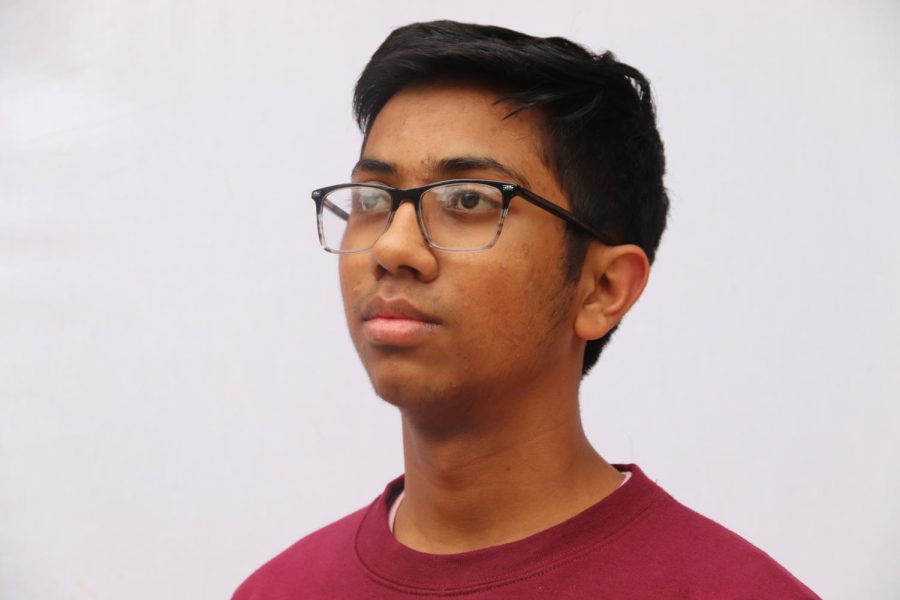Coppell High School senior Umang Vinayaka is valedictorian of the graduating class of 2023. Vinyaka plans on attending Harvard University, majoring in Computational Biology.
Umang Vinayaka
What does it mean to you to be in the top 10?
It’s a great recognition to have. That being said, I don’t pride myself on being ranked in the top 10. I’m proud that I have gone through the effort and been able to dedicate all the things I do to get to where I am today. It’s not about the number, it’s about the process that I went through to be able to achieve that.
What is something you wish you could tell your freshman self?
In ninth grade, it seems very overwhelming. There are four years, a thousand people in your class, you don’t know what you’re going to do and there’s a lot going on. I wish I told myself that I was going to be able to figure it out in the future and that it was going to be OK.
What is your most memorable part of high school?
It’s not a specific experience, but all the people I have been able to create life-long connections with. Whether that be through debate – my team, or other debaters I have met – or just talking with friends about life, creating those life-long connections where they feel like a sibling is something that I really cherish.
What are your thoughts on the current education system?
There are ways to improve it, like making it more equitable and making sure that students don’t have as much stress, but I think it’s well on its way to being able to achieve that. For example, there are a lot of things that we have recently been able to achieve, like holistic review, that allow us to make sure that it’s not just about the number or statistics, but the student. It’s not perfect, but there are steps being taken so that it will be better in the future.
What are your goals for the future?
I have a variety of interests that I have been able to develop throughout high school, such as public policy through debate, computer science, more specifically computational biology and also economics. As you can tell, I’m all over the place. I pride myself on that, because I can create that multidisciplinary approach when I go to college. The world is now moving to a place where you combine fields to create meaningful changes in society, and I want to encompass a lot of my interests to create one specific pathway.
What is your secret to success?
It’s two things. One is time management. I have a notes sheet on my phone where I have a list of every class, extracurricular, and thing that I have or am doing. Before I get home from school everyday, I have a complete list of things I am going to do that day and things I maybe won’t get done that day. Time management made sure I wasn’t getting overwhelmed by the lots of different things happening in high school. Second thing is prioritization. There are a lot of things to do but you don’t have unlimited time to do all of it. It’s not doing everything that is possible, but doing things that you enjoy engaging with or need to engage with.
What was the hardest lesson you had to learn during high school?
Not everything goes your way. There are a lot of times, especially in the short term, when things that you want to go your way are not going to go your way. That’s just how life works and being able to accept that fact is something that I found hard to do. Moving on from that is something that I have been able to learn over time.
What was your motivation throughout high school?
My motivation comes naturally. I love learning new things and areas. This year, I’m taking AP Macroeconomics and it really interests me. I’m enjoying learning outside of school especially, where I am able to explore new things because I found an interest in it. Also, your peers motivate you. If you’re friends with a lot of people that love doing different things, it motivates you to find your own thing and engage with what they’re doing to explore that as well. The people that surround you are a big determiner of how you approach whatever you do.
How much effort did you put into studying after school?
It varies depending on the week. There are some weeks when you have a lot of tests and things going on, so you have to put in hours after school. Debate tournaments took a large portion of my time over the weekend, especially on Friday and Saturday, so I would have to make up for that time on Sunday. I had to put in a lot of effort, but it worked out because it was a balance between doing other activities and studying.
What is your advice for younger students?
Don’t do what you think everyone else wants you to do. Do the things that you actually want to do. That’s what helps you get better at them, learn and grow so that when you approach college or your future career, it is easier for you to go into it because you’re passionate about it. Also, it’s really important to surround yourself with the right people. Being friends with the right people that will motivate you, help you grow and support you when you’re down is really important, especially in high school. Making sure that you have someone that you can go to is really important.
Follow @CHSCampusNews on Twitter
